
Piano learning used to require three things: money, time, and access to a teacher. If you had all three, great. If you didn't? Your musical dreams stayed dreams. MuseFlow is part of a revolution that's changing this equation entirely, using sophisticated technology to deliver what people hope for from a self-learning piano AI app: intelligent guidance without the traditional barriers.
Over the past decade, technology has demolished the walls that kept millions from learning piano. While we use advanced algorithms and data-driven design rather than marketing everything as "AI," we deliver exactly what learners want when they search for ways to self-learn piano with AI. adaptive challenges, instant feedback, and genuine progress.

Money. Private piano lessons cost $50-$150 per hour. That's $2,600-$7,800 per year for weekly lessons. For most families, that's simply not realistic.
Time. Weekly lessons at 3 PM every Tuesday don't work when you have an unpredictable schedule, kids with activities, or a job with irregular hours.
Access. Live in a rural area? Good piano teachers might be an hour away. Have social anxiety? The thought of performing for a teacher every week is paralyzing.
Feedback. Between lessons, you practice alone for 167 hours. If your technique is wrong, you're reinforcing bad habits for an entire week before anyone can correct you.
These barriers weren't just inconvenient. They were gatekeepers that determined who got to be musical and who didn't.
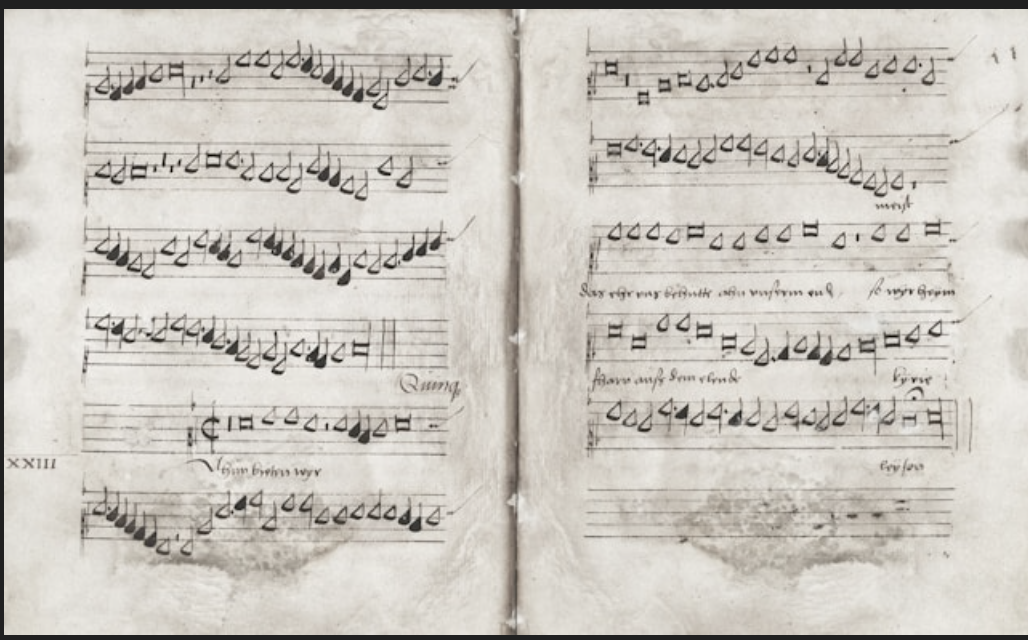
Modern piano learning technology solves each of these problems systematically. This is what draws people to search for an AI app to learn piano.. they're looking for solutions to real obstacles.
Cost drops to nearly nothing. MuseFlow costs less per month than a single traditional lesson. Suddenly, piano education is accessible to anyone with a keyboard and a device.
Schedule becomes irrelevant. Want to practice at 5 AM? Midnight? During your lunch break? MuseFlow is always ready. Studies on music learning motivation confirm that this autonomy drives better long-term outcomes.
Geography doesn't matter. Whether you live in Manhattan or rural Montana, you have access to the same sophisticated learning system.
Feedback becomes instant. Connect your MIDI keyboard to MuseFlow and every note gets immediate response. Green for perfect, yellow for timing issues, red for errors. Research from MIT demonstrates that immediate feedback enhances neural processing.
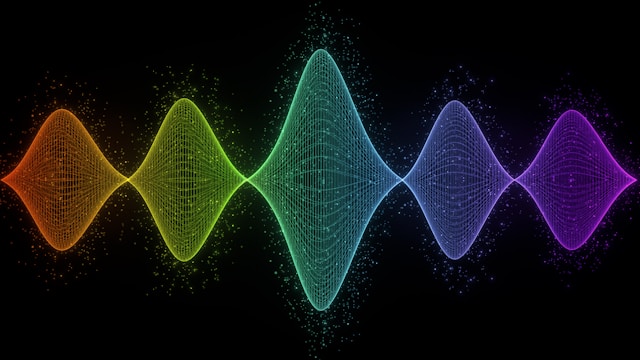
Here's what separates effective self-learning piano AI app solutions from gimmicks: they teach you to read music fluently, not just memorize songs.
If you're learning independently, what happens when you finish the app's song library? If you can't read music, you're stuck. But if you can sight read? You can pick up any sheet music and play it. That's real independence.
MuseFlow's approach prioritizes sight reading from day one. Our never-repeating music generation means you can't memorize your way through.. you have to actually read. Research confirms that sight reading proficiency is the strongest predictor of long-term musical success.
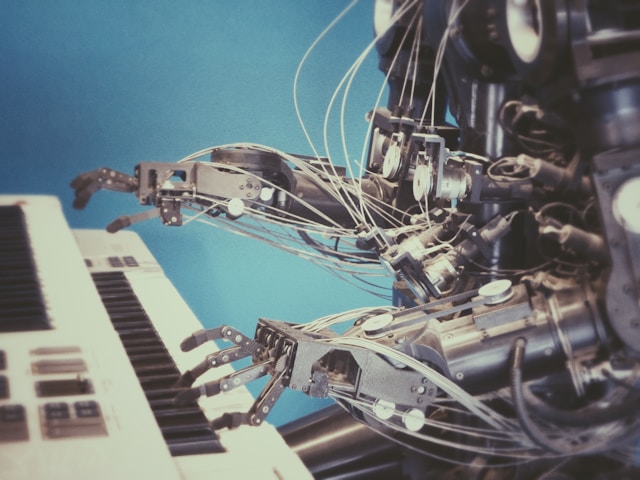
When people search for ways to self-learn piano with AI, they're asking for systems that adapt to their unique progress, not a one-size-fits-all curriculum. MuseFlow's 27-level roadmap introduces concepts when you're ready, not when a calendar says you should be.
They want feedback that's instant and accurate, not delayed by days. Our real-time response system creates the tight learning loops that accelerate skill acquisition.
They want practice that's engaging enough to sustain long-term. Our gamified approach makes daily practice something you want to do.
They want learning that builds transferable skills, not just the ability to play a fixed list of songs. When you develop sight reading fluency, every piece of music becomes accessible.
Whether you call it AI, algorithms, or intelligent software design matters less than whether it delivers these outcomes. Studies from USC show that consistent musical training strengthens brain networks.
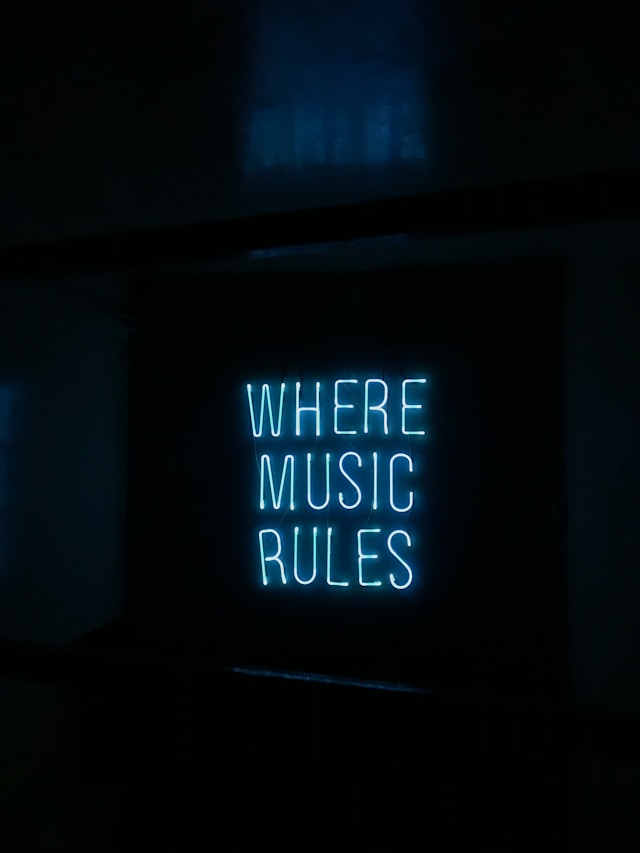
The app stores are full of piano learning apps promising to teach you in 30 days or make learning "fun and easy." But most of them teach you to memorize a handful of popular songs. That's fine for a party trick. It's not fine for genuine musical development.
The difference with MuseFlow? We're not trying to replace human teachers with artificial intelligence. We're using technology to solve specific problems: lack of appropriate practice material, delayed feedback, inconsistent motivation, and dependence on memorization.
Our never-repeating music forces actual reading. Our real-time feedback creates tight learning loops. Our progressive curriculum builds skills systematically. Our Flow State design makes practice genuinely engaging. Our sight reading focus creates real independence.
When you use MuseFlow, you're getting the benefits people hope for from self-learning piano AI app solutions without the hype. The benefits of musical education extend far beyond technical skill, enhancing cognitive function and emotional well-being.
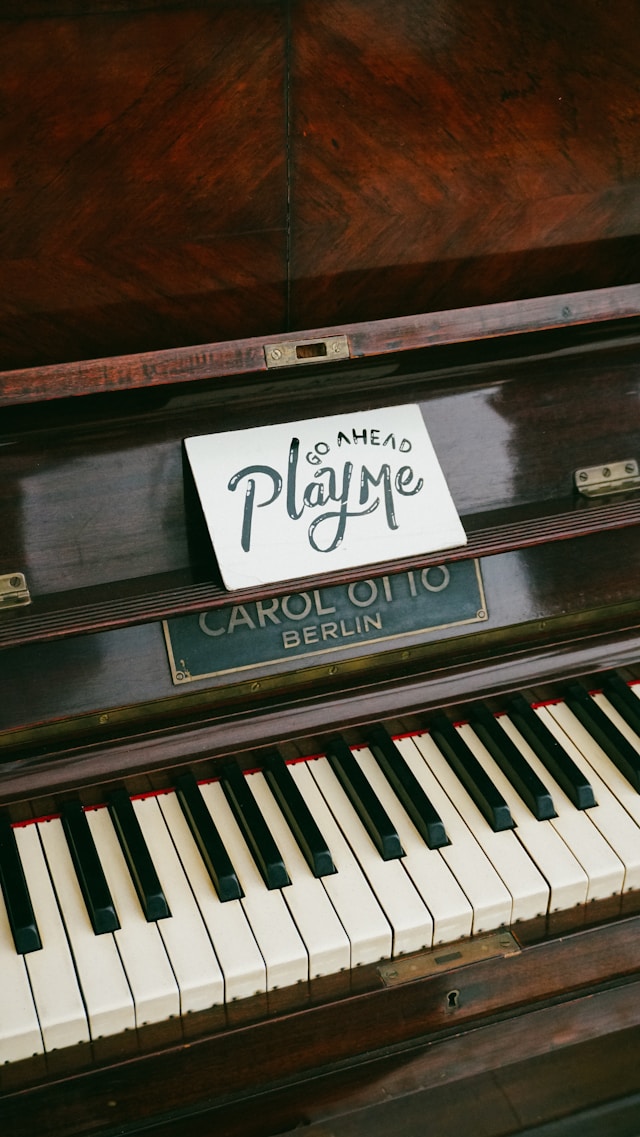
The rise of technology-enhanced piano learning isn't coming. It's already happened. The question isn't whether AI makes self-learning possible.. it's whether you're going to take advantage of what's now available.
MuseFlow represents the best of what modern technology offers: intelligent, adaptive, engaging piano education that builds lasting skills. No expensive lessons. No rigid schedules. No geographic limitations.
Ready to experience what's possible when technology meets musicianship? Try MuseFlow for free and discover the future of piano learning.

Sight reading is the holy grail of piano skills. It's what separates pianists who can only play memorized pieces from musicians who can sit down with any sheet music and actually play it. So when people ask if AI can improve piano sight reading, they're asking about something that could genuinely transform their musical abilities.
The short answer? Technology can absolutely accelerate sight reading development.. but not in the way most "AI" apps approach it. MuseFlow has pioneered a method that delivers what learners hope to get from AI to learn sight reading: endless practice material, instant feedback, and intelligent progression. While our system uses sophisticated algorithms rather than marketing buzzwords, it solves the exact problem that AI enthusiasts are trying to address.
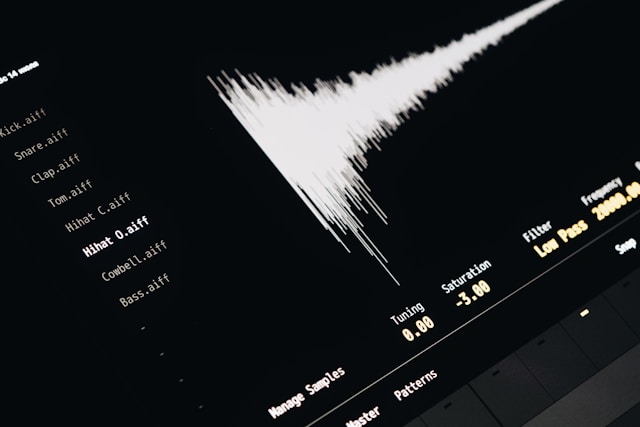
Here's the brutal truth about learning sight reading the old-fashioned way: you run out of appropriate material. Your teacher gives you a book of exercises. You practice them. After a few weeks, you've seen them all enough times that you're no longer sight reading.. you're remembering.
This is the fundamental problem that technology needs to solve. And it's exactly what MuseFlow's never-repeating music generation addresses. Every time you practice, you encounter genuinely new music at exactly your level. You can't memorize your way through it. You have to actually read.
Research on sight reading development shows that varied, progressive practice is essential for building fluency. This is where algorithmic generation becomes transformative.
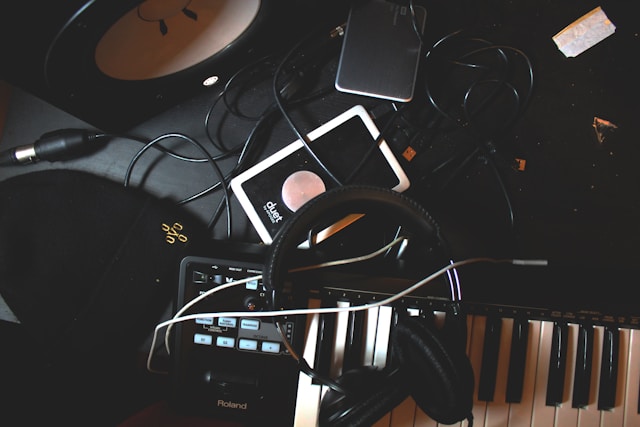
If you're looking for AI that helps with sight reading, here's what actually matters:
Generate Endless, Appropriate Material: MuseFlow creates an infinite stream of music tailored to your current level. Just learned to read the note E4? You'll get exercises that focus on that note with previously learned concepts. This is the intelligent adaptation that makes technology-enhanced learning so powerful. It's what people want when they search for AI to improve piano sight reading.
Provide Instant, Accurate Feedback: Sight reading practice only works if you know immediately when you've made a mistake. MuseFlow's real-time feedback system gives you color-coded responses on every note. Green for perfect, yellow for timing issues, red for wrong notes. Studies from MIT show that immediate correction enhances neural processing.
Progress at the Right Pace: Too fast and you're overwhelmed. Too slow and you're bored. MuseFlow's 27-level roadmap introduces new concepts systematically, building on what you've already mastered.
Make Practice Engaging Enough to Stick With: The best sight reading tool is the one you actually use consistently. MuseFlow's gamified approach.. levels, achievements, accuracy tracking.. turns what could be tedious practice into an engaging experience. Research on flow in music practice confirms that engagement and autonomy drive better outcomes.

Whether you're using AI, algorithms, or traditional methods, sight reading improvement comes down to specific cognitive processes. Your brain needs to see thousands of note combinations to build automatic recognition. MuseFlow's never-repeating music provides this volume of exposure without the boredom of repetitive exercises.
Good sight readers anticipate what's coming next. This only develops through extensive practice with varied material. The algorithmic generation ensures you're always encountering new patterns. Studies on sight reading proficiency confirm that these elements, when combined, create the fastest path to fluency.
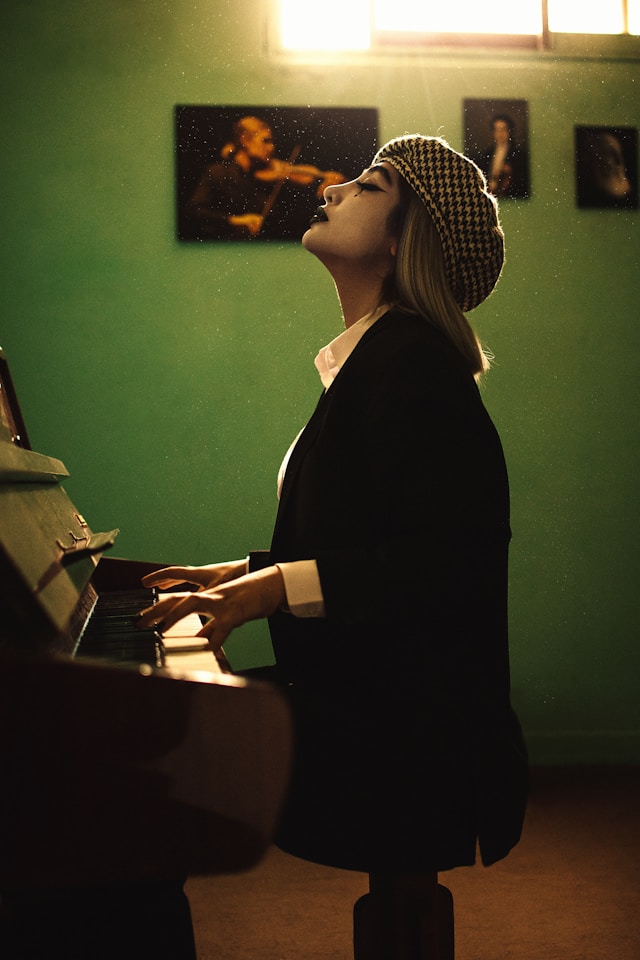
Many apps slap "AI" on their marketing and hope you don't ask questions. MuseFlow takes a different approach: we focus on what actually works. Our algorithmic music generation, real-time feedback, and progressive curriculum deliver the results that AI promises without the hype.
The difference is in the philosophy. We're not trying to replace human musicianship with artificial intelligence. We're using technology to solve the specific problems that make sight reading hard to learn: lack of appropriate material, delayed feedback, and inconsistent practice.
When you use MuseFlow, you're getting a system designed by musicians who understand both pedagogy and technology. Research from USC demonstrates that consistent musical training strengthens brain networks, and MuseFlow makes that training more systematic and effective.
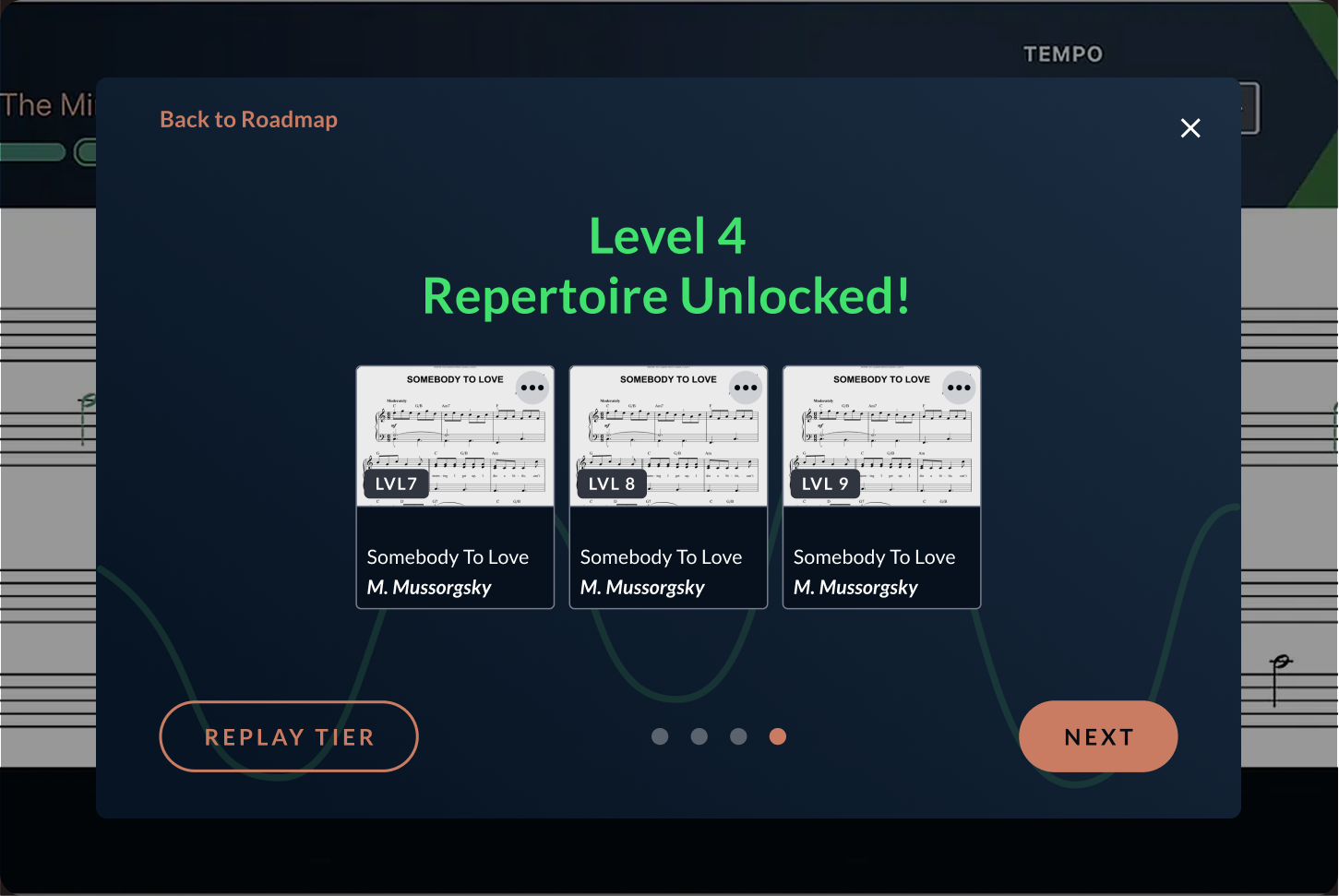
Can AI improve piano sight reading? The technology exists to make sight reading practice more effective, more engaging, and more accessible. Whether you call it AI or algorithmic intelligence doesn't change the results.
What changes results is: Does it give you endless appropriate material? Does it provide instant feedback? Does it progress intelligently? Does it keep you practicing consistently?
MuseFlow does all of this. Our sight reading-first approach has helped thousands of students develop the fluency that unlocks musical independence. If you're serious about developing sight reading skills that last a lifetime, MuseFlow offers the most effective method available. The benefits of musical literacy extend far beyond the piano, enhancing cognitive function and creative expression.
Ready to experience what intelligent sight reading practice actually feels like? Try MuseFlow for free and discover why the method matters more than the marketing.

Can AI help you learn piano? It's the question on everyone's mind as artificial intelligence transforms everything from how we work to how we create. The promise is tantalizing: intelligent systems that adapt to your learning style, provide instant feedback, and accelerate your progress. But here's the truth.. not all "AI" piano tools are created equal.
If you're exploring whether you can use AI to learn piano, MuseFlow offers something that delivers on what people actually want from AI-powered learning: real-time adaptation, intelligent feedback, and a system that responds to your unique progress. While we use sophisticated algorithms rather than calling everything "AI," the experience is exactly what learners are seeking when they search for AI to learn piano faster. Find out how below!
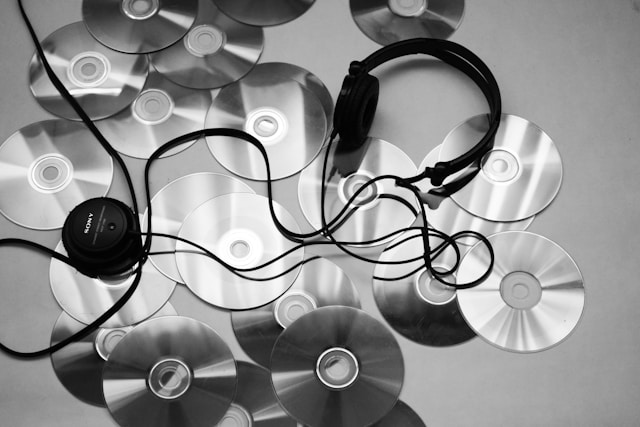
When someone asks "can AI help you learn piano?" they're really asking: Will it adapt to my skill level? Will it give me instant feedback? Will it know what I need to practice next?
MuseFlow's algorithmic system adjusts difficulty in real-time, keeping you in that optimal learning zone. Every note you play gets immediate, color-coded response which is more nuanced than any other system out there. The app guides you through 27 levels of increasing complexity, introducing new concepts exactly when you're ready. Research from MIT demonstrates that structured, responsive piano instruction enhances cognitive development.
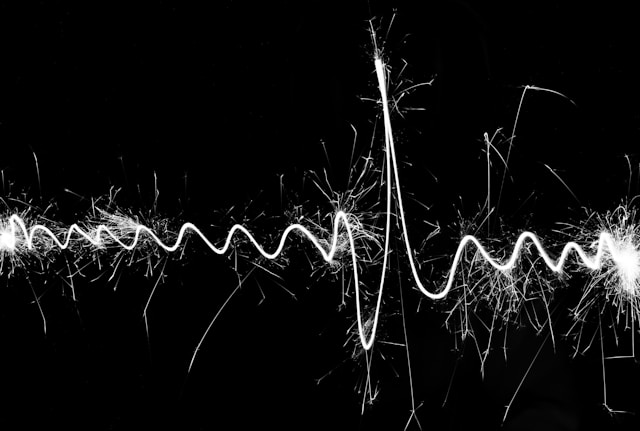
Here's what most "AI piano apps" actually do: they listen to your playing and tell you if you hit the right notes. That's useful, but it's not particularly intelligent. It's pattern matching, not adaptive learning.
What's missing? They don't teach you to read music fluently. They focus on memorizing songs, which means you're dependent on the app forever. True musical intelligence means developing sight reading skills that transfer to any piece of music. Studies show that sight reading proficiency is the strongest predictor of long-term musical success.
Most apps have a fixed library of songs and exercises. MuseFlow generates never-repeating music, which means your brain can't rely on memorization.. you have to actually learn to read and play.

Whether you're using AI, algorithms, or traditional methods, certain principles accelerate learning:
Immediate Feedback Loops: Your brain learns fastest when it gets instant correction. MuseFlow provides note-by-note feedback in real-time, creating the tight feedback loops that accelerate skill acquisition. This is what people want when they look for AI to learn piano faster.
Adaptive Difficulty: The system should always challenge you at the right level. MuseFlow's approach keeps you in that sweet spot through intelligent difficulty adjustment.
Skill Building Over Song Memorization: The fastest path to piano mastery is learning to read music fluently first. This is where MuseFlow's sight reading-first approach outperforms both traditional methods and most AI apps. Research on music learning motivation shows that competence and autonomy drive long-term success.
Consistent Practice Made Engaging: The best learning tool is the one you actually use. MuseFlow's gamified approach.. levels, achievements, accuracy tracking.. makes daily practice something you want to do, not something you force yourself through. The system is designed to create Flow State, where learning accelerates naturally.

If you're wondering can I use AI to learn piano, consider this: MuseFlow delivers everything people want from AI-powered learning without the hype. Our algorithmic music generation, real-time feedback system, and adaptive curriculum create an experience that feels intelligently personalized because it is.
We don't need to call it AI to make it work. The results speak for themselves. Students who use MuseFlow develop genuine sight reading fluency, musical independence, and the ability to tackle any piece of music they encounter. Studies from USC confirm that consistent musical training strengthens brain networks.

Can AI help you learn piano? The technology exists to make learning faster, more personalized, and more effective. Whether you call it AI, algorithms, or smart software doesn't matter as much as whether it actually works.
What matters is: Does it teach you to read music? Does it adapt to your progress? Does it provide instant feedback? Does it keep you engaged? Does it build transferable skills?
MuseFlow answers yes to all of these questions. The benefits of structured music learning extend far beyond the keyboard, enhancing cognitive function and creative thinking.

Ready to experience what intelligent piano learning actually feels like? Try MuseFlow for free for 14 days and discover why the technology behind the learning matters less than the results it creates.
The short answer? Yes, you absolutely can learn piano by yourself now! The longer answer? It depends on how you approach it, but MuseFlow makes it possible!
For decades, the conventional wisdom has been clear: if you want to learn piano properly, you need a teacher. And while there's truth to the value of human instruction, this belief has kept countless aspiring musicians from ever touching the keys. The cost, the scheduling conflicts, the intimidation factor.. these barriers have silenced too many musical dreams.
But here's what's changed. Technology has finally caught up to what self-learners have always needed: real-time guidance, structured curriculum, and honest feedback. The question isn't really "can I learn piano by myself?" anymore. It's "what tools do I need to succeed?"

Let's be honest about what makes self-teaching piano so difficult. Many self-taught pianists face these same roadblocks.
When you're teaching yourself, how do you know if that fingering is correct? Is your posture going to cause problems later? Are you even hitting the right notes? Without feedback, you might spend weeks reinforcing bad habits that will take months to unlearn. Research shows that piano training enhances neural processing, but only when you're practicing correctly.
MuseFlow's Solution: Real-time feedback on every single note. The app connects to your MIDI keyboard and gives you instant, color-coded responses. Green means perfect. Yellow means your timing needs work. Red means try again. It's like having a teacher watching over your shoulder, but without the pressure or the hourly rate.

YouTube has thousands of piano tutorials. Books promise to teach you in 30 days. Apps offer conflicting advice. The paradox of choice becomes paralyzing. Do you learn songs first or theory? Chords or scales? Classical or pop?
MuseFlow's Solution: A clear, progressive roadmap from Level 0 to mastery. No guessing, no confusion. The app is built on a sight reading-first philosophy that teaches you to read music fluently from day one. Think of it like learning to read before trying to write a novel. Once you can read music, you can play anything. Studies on sight reading development confirm that systematic practice significantly improves reading efficiency and musical independence.
Week one is exciting. Week two is promising. Week three? The piano becomes a very expensive piece of furniture. Without accountability, without visible progress, without someone cheering you on.. it's easy to give up. Traditional practice can feel isolating and tedious.
MuseFlow's Solution: Gamification that actually works. You're not just practicing; you're completing levels, unlocking achievements, and watching your accuracy scores climb. The app is designed to create Flow State.. that magical zone where challenge meets skill and time disappears. Research on flow in music practice shows that autonomy and appropriate challenge are essential for sustained engagement.

There are plenty of piano apps out there. Most of them teach you to memorize a handful of songs. That's fun for a party trick, but it's not real musicianship.
MuseFlow teaches you to be a musician, not a human jukebox. The never-repeating music generation means you're always sight reading, always building that fundamental skill. By the time you've completed a few levels, you'll be able to pick up sheet music you've never seen and actually play it. That's the difference between learning songs and learning music.
The benefits of learning an instrument go far beyond entertainment. Educational research from institutions like Colburn School shows that music education enhances cognitive function, emotional intelligence, and creative problem-solving.

So, is it possible to learn piano by yourself? With the right approach and the right tools, absolutely. MuseFlow removes the barriers that have traditionally made self-teaching so difficult. You get structure without rigidity, feedback without judgment, and motivation without pressure.
Whether you're a complete beginner or someone returning to the piano after years away, MuseFlow meets you exactly where you are. The app adapts to your pace, celebrates your progress, and keeps you engaged through the inevitable challenging moments.
The question was never really whether you can teach yourself piano. The question was whether you had the right tools to do it effectively. Now you do.

Ready to start your self-taught piano journey the smart way? Try MuseFlow for free and discover what's possible when technology meets musicianship.
We've all been there. You started learning piano filled with excitement, dreaming of playing your favorite songs. The first few weeks were a blast, and you were making progress. But then.. it happened. You hit a wall. The piece you're working on feels impossible, practice starts to feel like a chore, and the piano bench gathers a thin layer of dust. How do you stay motivated when learning piano gets tough?
It's a question every musician faces, from beginners to seasoned pros. The dip in motivation is a natural part of any learning journey. But the secret isn't to just "push through it" with sheer willpower. The secret is to find a way to make the process itself so engaging that motivation takes care of itself. It's about finding the joy in the journey, not just the destination.
MuseFlow now makes it possible to stay motivated every single day!
If you're struggling with how to stay motivated learning piano, you're not alone. The traditional way of learning often sets us up for this struggle. Repetitive drills, slow progress, and a lack of immediate feedback can drain the passion out of anyone. But what if practice felt less like work and more like play? Research in music psychology shows that motivation is deeply connected to autonomy, competence, and relatedness in the learning environment.

MuseFlow is designed to be the ultimate tool to stay motivated learning piano. We understand the emotional side of learning an instrument, and we've built a platform that tackles the biggest motivation killers head-on. It's a transformative experience that puts the joy back into your practice.
Here's how MuseFlow keeps you coming back to the keyboard, even on the tough days:
The fastest way to lose motivation is to be bored. MuseFlow turns tedious practice into an addictive game. Instead of dry exercises, you're completing levels, earning accuracy scores, and unlocking achievements. Our sight reading trainer generates a never-ending stream of new music, so you're never stuck playing the same thing over and over. This ingenious approach keeps your brain engaged and curious.
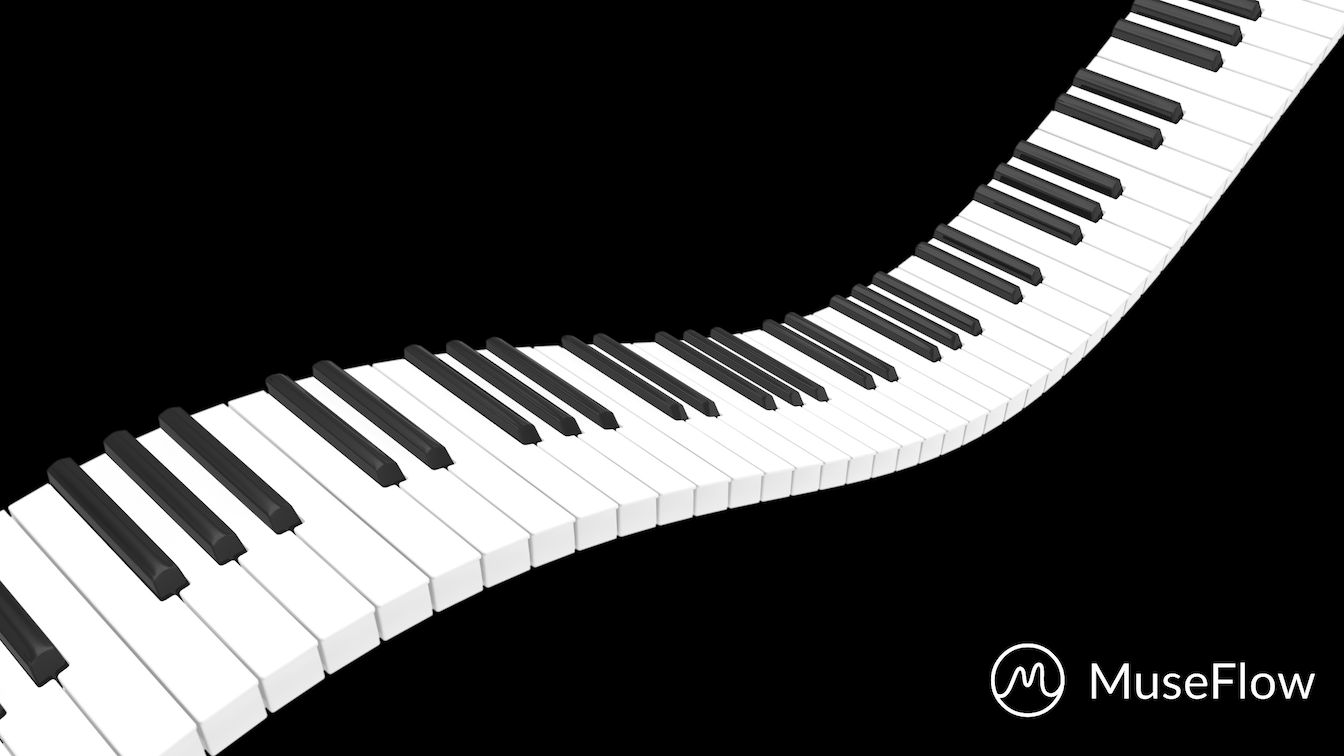
Ever get so lost in an activity that time just melts away? That's the Flow State, and it's the holy grail of motivation. MuseFlow is engineered to help you find it. By allowing you to adjust the tempo and difficulty, you can always find that perfect "Goldilocks" challenge.. not too hard, not too easy. When you're in flow, practice is no longer a struggle; it's an immersive and deeply satisfying experience. Studies on flow in music practice show that autonomy and appropriate challenge levels are key to achieving this state.
One of the biggest frustrations is feeling like you're not getting any better. MuseFlow's real-time feedback system makes your progress visible and undeniable. With every note you play, you get instant confirmation. Watching your accuracy score climb and seeing those chevrons light up gives you a constant stream of small wins. This creates a powerful positive feedback loop that builds confidence and makes you eager to keep improving. Research from USC demonstrates that consistent musical training strengthens brain networks that process sound and communication.

Feeling stuck on a particular piece? No problem. MuseFlow's vast repertoire library and flexible roadmap mean you're never trapped. If one song is frustrating you, simply jump over to another one at your level, or go back and perfect an older piece. This freedom to choose your own adventure prevents burnout and keeps your musical journey fresh and exciting. Whether you're working through perfectionism challenges or just need a change of pace, MuseFlow adapts to your needs.
Learning piano is a marathon, not a sprint. There will be challenging days. But with the right tools, those challenges become stepping stones instead of roadblocks. MuseFlow empowers you to find the fun in the process, celebrate your progress, and build a lasting relationship with music. The transformative power of music extends beyond technical skill, impacting emotional well-being and cognitive function.

Don't let a temporary dip in motivation stop you from achieving your musical dreams. Try MuseFlow for free and rediscover the joy of playing the piano.
Can I learn piano without a teacher? It's a question many aspiring musicians ask themselves. The dream of playing beautiful music often feels like it's locked behind expensive lessons and rigid schedules. But what if you could unlock that dream on your own terms, right from home? The answer is a resounding yes.. and it's more exciting and achievable than you might think!!
For years, the path to learning piano has seemed to have only one route: a weekly lesson with a teacher. While teachers are invaluable, this traditional model doesn't work for everyone. What happens in the six days between lessons when you're practicing alone? You might be repeating the same mistakes, feeling unsure of your progress, or losing motivation altogether. This is where so many self-learners get stuck.
This is where the question of "how to learn piano by yourself" becomes crucial. Without instant feedback, it's nearly impossible to know if you're playing correctly. Are you hitting the right notes? Is your rhythm steady? This uncertainty can turn practice into a frustrating guessing game. But what if you had a guide by your side 24/7, giving you precise feedback on every single note you play?
MuseFlow now makes it possible to learn piano without a teacher!
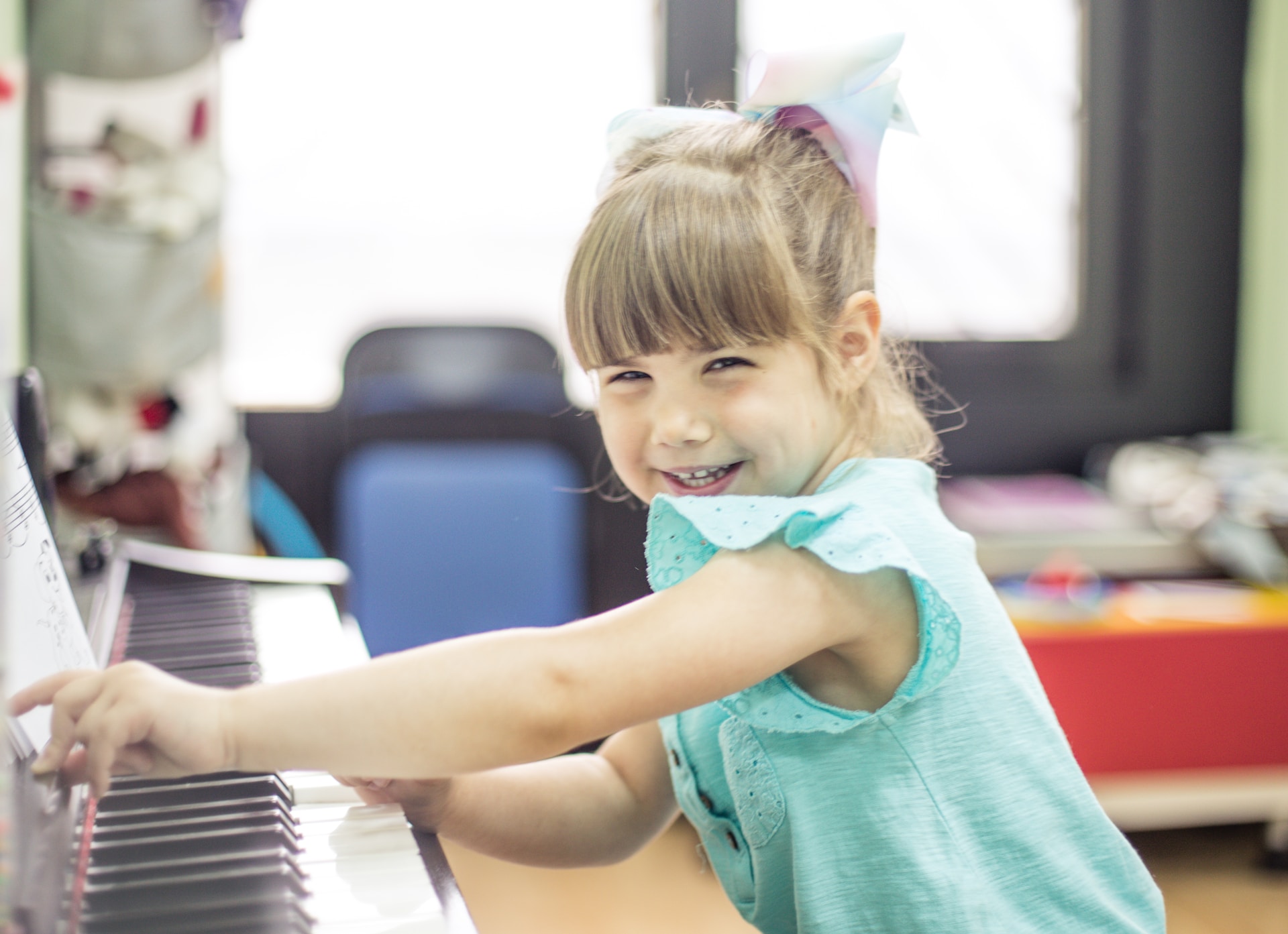
MuseFlow was designed to solve this exact problem. It's not just another app.. it's a revolutionary platform that makes it possible to learn piano without a teacher by providing the tools and guidance you need, right when you need them. It's an effortless and immersive experience that transforms your learning journey.
Here's how MuseFlow empowers you to play piano without a teacher:
Imagine playing a note and instantly knowing if it was right. MuseFlow connects to your MIDI keyboard and gives you immediate, color-coded feedback. Green for a perfect note, yellow for a timing issue, and red for a wrong note. This isn't about criticism.. it's about clarity. You're not just practicing; you're practicing perfectly from the very first day, building a solid foundation of correct habits. Research from MIT shows that structured piano lessons can enhance cognitive development, and MuseFlow brings that structured approach to self-learners.
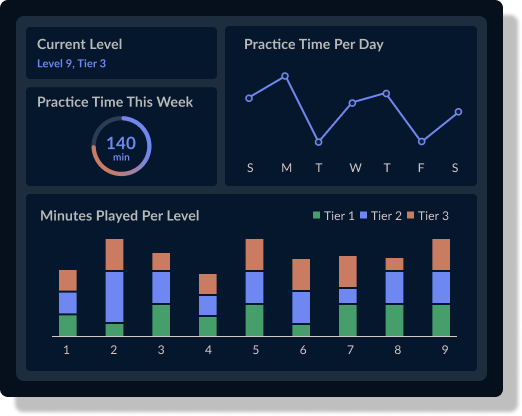
Many traditional methods teach you to memorize songs, which is like learning a few phrases in a language without knowing the alphabet. MuseFlow takes a different approach by focusing on sight reading from day one. Our interactive tutorials and never-repeating exercises teach you to read music fluently. This is the key to true musical independence. Once you can read music, you can play anything you want, not just the songs you've memorized. Studies show that sight reading proficiency correlates with higher musical achievement.

Let's be honest.. traditional drills can be boring. MuseFlow turns practice into an engaging game. You'll progress through levels, unlock new songs in the repertoire library, and chase high scores for accuracy. This isn't just for fun; it's about tapping into the power of Flow State. When you're in that zone where the challenge is perfectly matched to your skill level, time flies, and learning feels effortless. You'll find yourself wanting to practice, not feeling like you have to.
Worried you'll get stuck? MuseFlow's roadmap is designed like a game with both a main campaign and an open world. You can follow the structured path, ensuring you build skills progressively, or you can explore different songs and exercises that pique your interest. This ingenious design means you're always in control of your learning journey, moving at a pace that feels right for you. Whether you're a complete beginner or returning to the piano after years away, MuseFlow meets you where you are.
So, can I learn piano without a teacher? With MuseFlow, the answer is an enthusiastic yes. You're not just learning to play the piano; you're learning to become a musician. You're building the skills, the confidence, and the passion to last a lifetime. The benefits of learning an instrument extend far beyond the keyboard, enhancing cognitive function, creativity, and emotional well-being.

Ready to start your musical journey? Try MuseFlow for free today and discover how our transformative approach can empower you to learn piano on your own terms.
You're on the hunt for the perfect piano learning app and you've come across Flowkey. It's a popular choice, and for good reason. But what if you're looking for a Flowkey competitor that offers something different? What if you're looking for an app that doesn't just teach you to play songs, but teaches you to speak the language of music?
If that sounds like you, then you need to check out MuseFlow.

While there are many apps like Flowkey, MuseFlow offers a unique approach to piano learning that sets it apart from the competition. For someone learning to play piano there are key differences between Flowkey and MuseFlow.
Flowkey is popular to make it fun to learn popular tunes from its song library. If your main goal is to learn some specific music, Flowkey offers many selections. This is satisfying for casual learners or those who seeking to play a familiar melody.
But what if you want to go deeper?.... What if you want to unlock the ability to play any piece of music?
This is where MuseFlow shines. MuseFlow is more than just a Flowkey alternative; it's a revolutionary approach to piano education. While Flowkey focuses on teaching how to play specific songs, MuseFlow focuses on teaching the foundational skill of sight reading.
Think of it this way: learning a song on Flowkey is like memorizing a few phrases in a foreign language. It's useful, but it doesn't make you fluent.
Learning to sight read with MuseFlow is like learning the grammar and vocabulary of that language. Once you're fluent, you can understand and speak any sentence you want.

MuseFlow turns the often-daunting task of learning to sight read into an engaging and addictive game. This isn't just about making learning "fun"; it's about leveraging gamification to create a more effective learning experience. Research has shown that gamification in education can improve cognitive, motivational, and behavioral learning outcomes.
Here's how MuseFlow's game-like approach helps you master sight reading:

By making sight reading the core game mechanic, MuseFlow helps you build a skill that will serve you for your entire musical life. As this Smithsonian Science article notes, gamification increases engagement and makes learning more accessible.
The ultimate goal of any good music education is to create independent musicians. While Flowkey can be a great tool, MuseFlow is an alternative that is designed to make you self-sufficient. The foundation of MuseFlow's engineering and product design is so you can master sight reading. When you improve your sight reading skill, you'll be able to:
For a deeper dive into how this works, check out how to learn piano with game-like lessons.
So, should you choose Flowkey or MuseFlow? The answer depends on your goals. Flowkey is well suited for learners hoping to play popular songs for fun. MuseFlow is ideal if you're goal is to use best-of-breed teaching tools to become a confident sight reader.

Learning to play the piano is a timeless goal, but rigid schedules and expensive private lessons can be major barriers. What if you could learn piano at home on your own terms, faster than ever?
The fastest way to learn piano at home combines cutting-edge technology with proven learning science.
Just as Duolingo revolutionized language learning through gamification, modern piano apps are transforming music education. Several apps have gained broad popularity with children and adults. MuseFlow specializes in sight reading mastery rather than song memorization.

Traditional piano lessons operate on slow feedback loops. You practice for a week... potentially reinforcing mistakes... then get corrected at your next lesson. This creates "negative practice," strengthening incorrect motor skills, understanding, and neural pathways.
Fast feedback loops work differently:
In analyzing piano education online: Challenges and solutions, a National Institutes of Health (NIH) study evaluated students using specialized apps. The findings? Students using specialized learning apps learned pieces nearly 30% faster than traditional methods.
Scholars concluded: "Today, piano education is actively developing in the format of online learning, such training expands the possibilities of theoretical knowledge and practical skills of students regardless of place and time while having high efficiency."
What does this mean practically? Consider if you practiced sight reading 10 minutes a day for 4 days a week. Research suggests your 40 minutes of practice would be as effective as nearly a full hour of practice. Moreover, the time practicing taps into Flow State which makes the learning process much more enjoyable.
Unlike waiting a week for teacher corrections, you get instant feedback that prevents bad habits from forming. This accelerated learning approach helps you progress much faster than traditional methods. You can be more efficient and more effective.
How to learn piano at home requires minimal equipment:
No stacks of expensive method books cluttering your space, no scattered sheet music, no bulky metronomes. Everything fits in a compact digital setup.
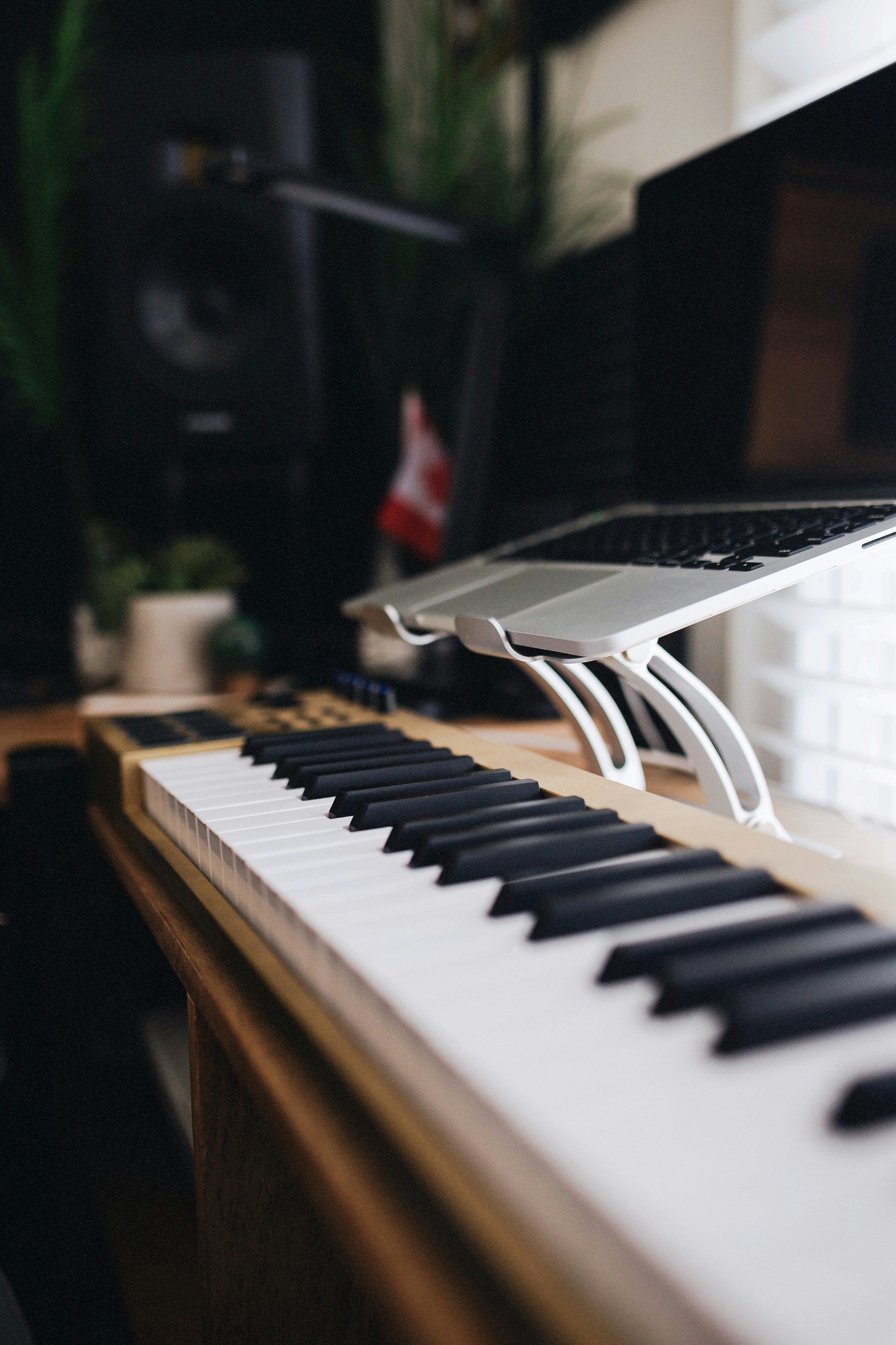
Like Duolingo's points and streaks, modern piano apps use psychological principles that make practice addictive. MuseFlow creates a Guitar Hero-like experience for sight reading, making practice feel like gaming. In fact, if you like playing video games as a way to decompress, you'll find a similar experience when learning to sight read with MuseFlow.
A National Institutes of Health (NIH) study found that piano practice improves executive function, memory, and processing speed, while also decreasing depression and improving quality of life.
Traditional piano learning requires countless method books, exercise collections, and sheet music that fill entire bookshelves. Books and individual pieces costing hundreds of dollars. MuseFlow's revolutionary approach generates endless new material tailored to your skill level:
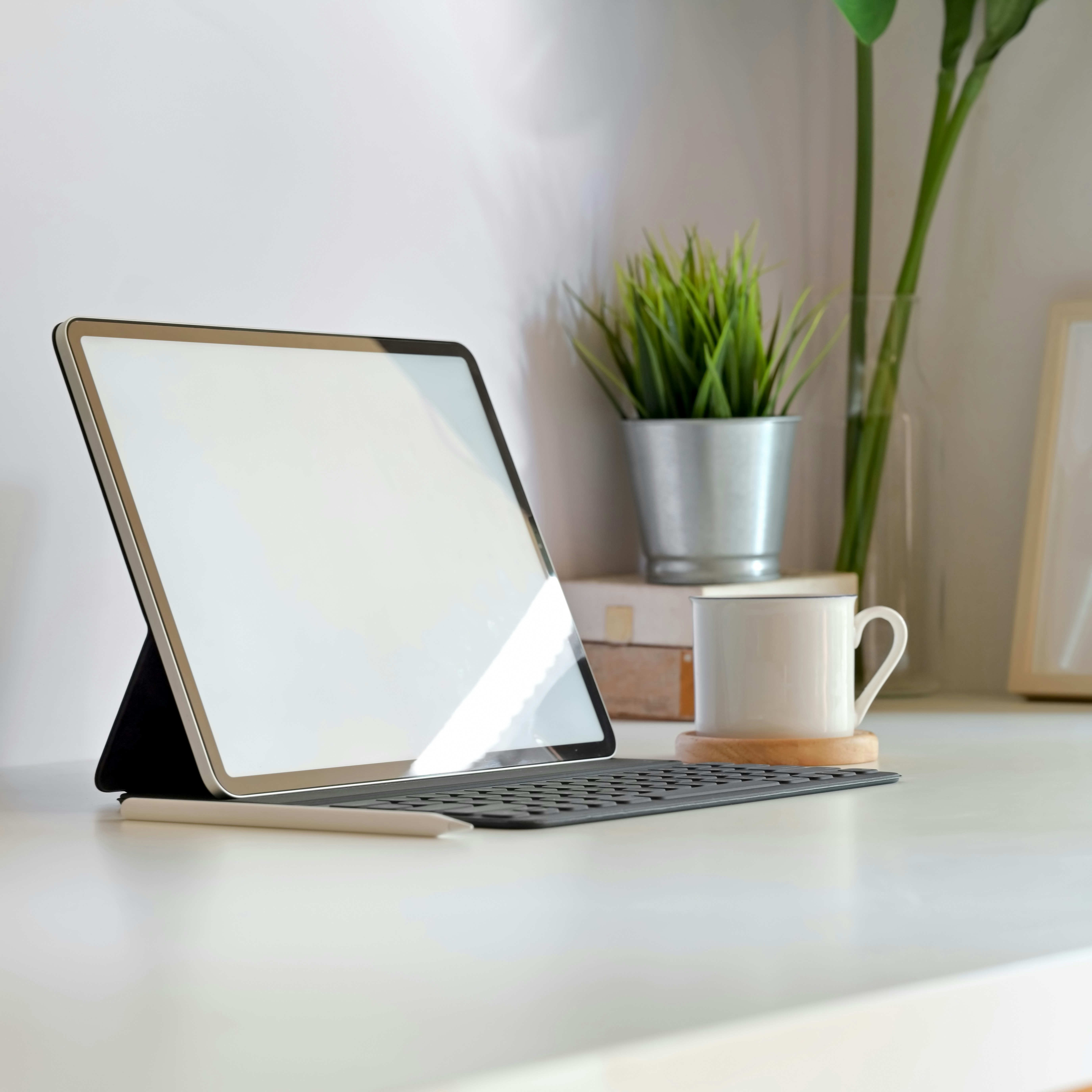
Home learning with MuseFlow removes the constraints of scheduled lessons. Practice for 10 minutes or or an hour before work or at midnight when the house is quiet. This flexibility helps build consistent habits, which are key to real progress.
Whether you’re a busy professional or juggling family life, MuseFlow fits into your day. Fitness apps let you choose a quick session or a full workout; audiobooks and podcasts turn chores and commutes into learning time. MuseFlow lets you learn piano on your terms.
Private lessons can cost $50–$100+ per hour, and even remote platforms often stick to weekly sessions with fixed schedules. For many, that’s expensive and hard to maintain. The situation is more complicated with limited access in rural areas or a busy lifestyle that doesn’t fit the typical lesson format.
MuseFlow gives you unlimited, on-demand access to a structured, personalized curriculum for less than the price of a single lesson each month. No scheduling, no commuting, no mismatched teaching styles. You receive consistent progress that fits your life and budget.
The fastest way to learn piano at home combines modern technology with accelerated learning science. By leveraging fast feedback loops, gamification, cutting-edge technology and AI, you can achieve musical goals faster than traditional methods. The future of piano education is in your home, available 24/7.

Choosing the right piano learning app can feel overwhelming. With so many options available, it's difficult to know which one will help you achieve your musical goals. For many, Skoove has been a popular starting point, but a new generation of learning tools is challenging the status quo.
If you're looking for a powerful Skoove competitor that offers a more engaging and effective path to piano mastery, you've come to the right place. MuseFlow is not just another Skoove alternative; it's a revolutionary approach that transforms piano practice from a chore into an exciting adventure.
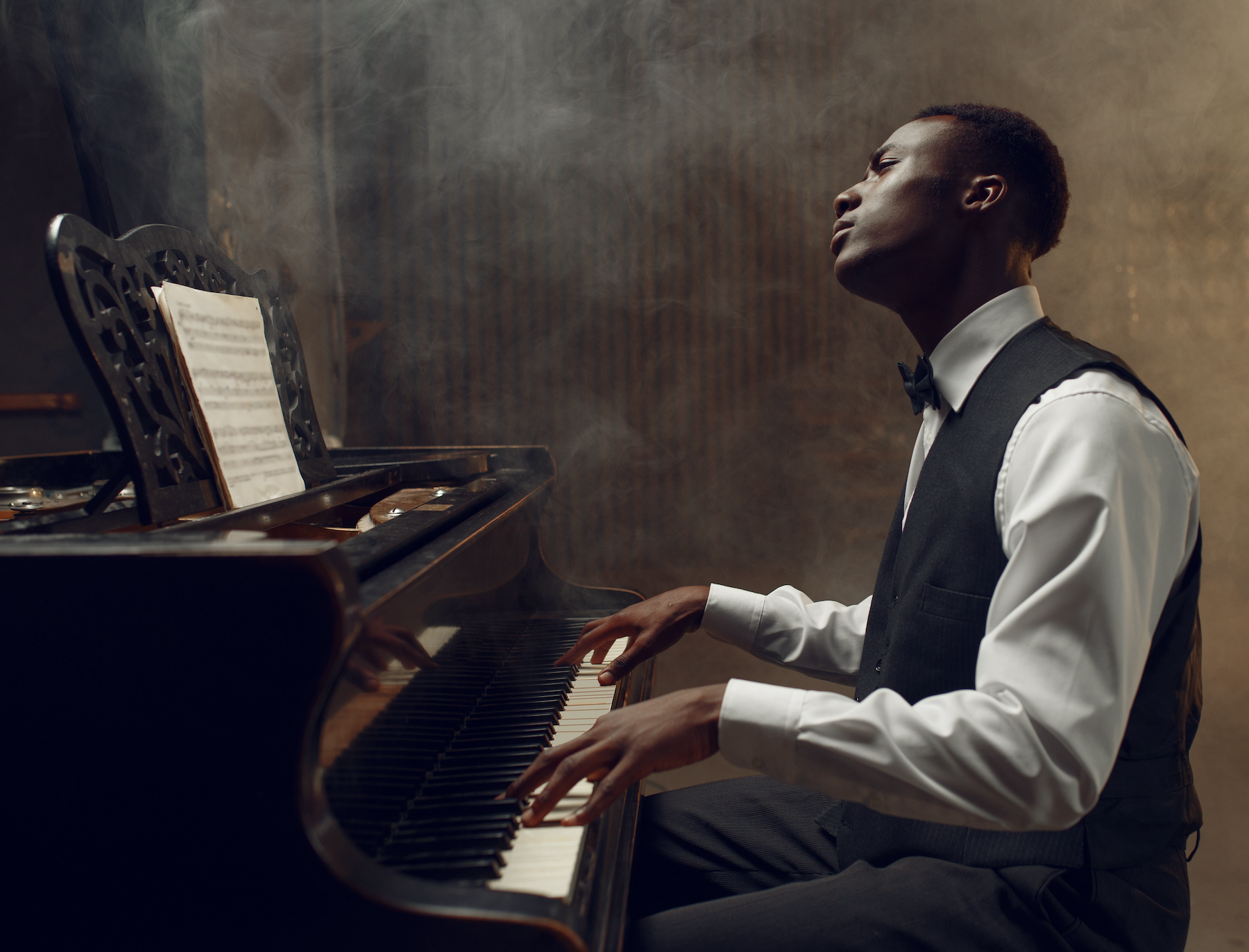
Skoove is known for its broad piano education platform. It's a solid choice for those looking for a resource that includes popular songs, classical pieces, and music theory lessons. Those who want to explore different musical styles and play favorite tunes often select Skoove to improve their general musicianship.
However, while the app excels at teaching you to play specific songs, it follows a traditional educational model that often involves repetitive practice of individual pieces until they're memorized, which can lead to dependency on the app rather than developing independent musical skills.
If you're serious about developing sight reading skills specifically, this is where MuseFlow truly shines as the leading Skoove competitor. While other apps like Skoove offer broad musical education, MuseFlow has built its entire learning system around one critical skill: sight reading fluency.
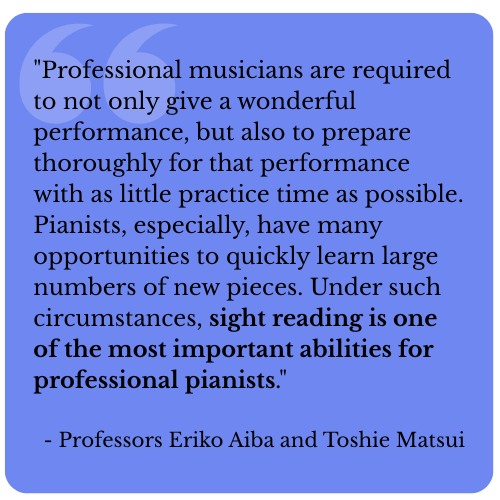
MuseFlow focuses on building your core musical skills through engaging, game-like challenges designed to keep you in a state of "Flow." The concept of Flow State is familiar to us, as we've all experienced it in various times. Flow occurs when your skill and the challenge are perfectly matched, so you're fully absorbed in what you're doing. You've likely experienced this at work, doing a hobby, or performing some enjoyable task where you "lose track of time."
MuseFlow provides instant, real-time feedback on every note you play, creating a tight feedback loop that accelerates learning and prevents bad habits from forming. This immediate reinforcement is crucial for building confidence and developing neural pathways for fluent sight reading.
Here's a key: Skoove teaches you to play songs. MuseFlow teaches you to read music like a language.
MuseFlow leverages cutting-edge technologies and AI (Artificial Intelligence) to deliver an endless amount of new music. This feat is simply impossible with traditional methods or apps like Skoove that rely on pre-recorded content. This technology creates a personalized learning experience that adapts to your skill level and pace.
Better yet, MuseFlow's adaptive learning system ensures that you're on a custom learning plan designed to increase your mastery. And the scientifically-based approach is called "gamification."
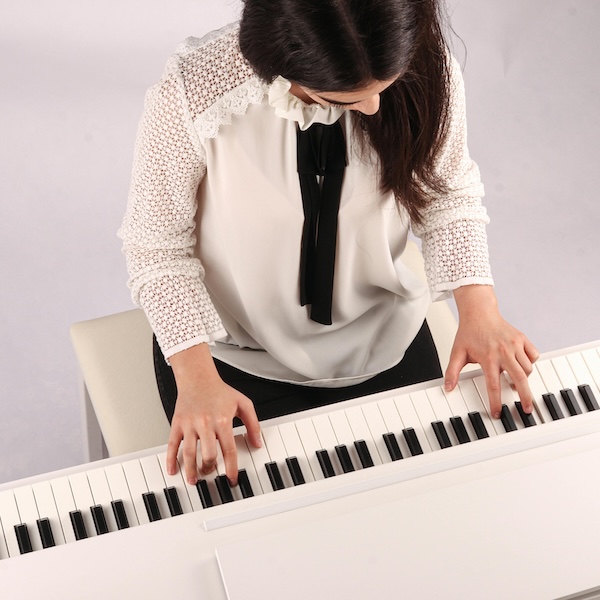
A gamified approach transforms sight reading practice from a tedious exercise into an addictive, rewarding experience. For a deeper dive into why this method is so powerful, you can explore our article on how to learn piano with game-like lessons.
The power of gamification in education is backed by extensive research. Studies have shown that when learning is structured like a game, it leads to significant improvements in engagement, motivation, and knowledge retention. The Smithsonian published an article on the 5 Benefits of Gamification, citing how the high value of gamification for education is underutilized.
If you're learning to sight read piano, here's what gamification does for you:
The best piano learning app depends on your specific goals and learning style. Learners seeking a broad musical education with traditional instruction methods might choose Skoove. However, if your primary goal is to master fluent sight reading skills, MuseFlow is a specialized solution.


Keep up to date on our progress as we continue to add new features!